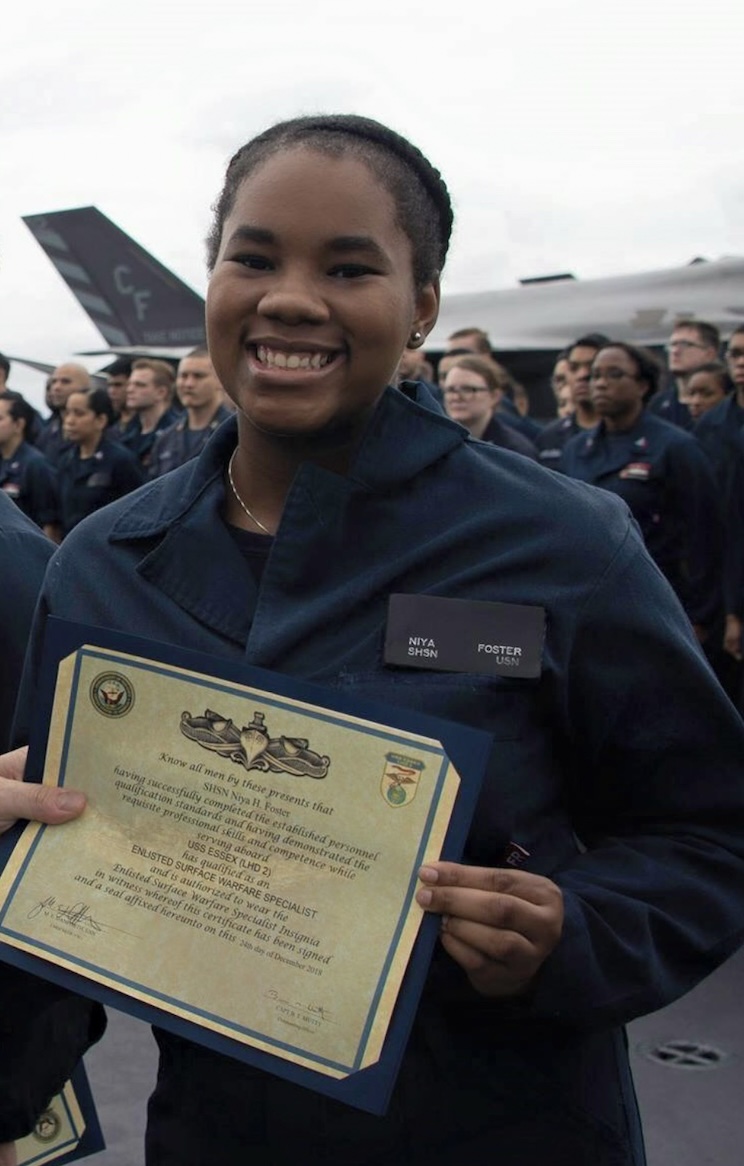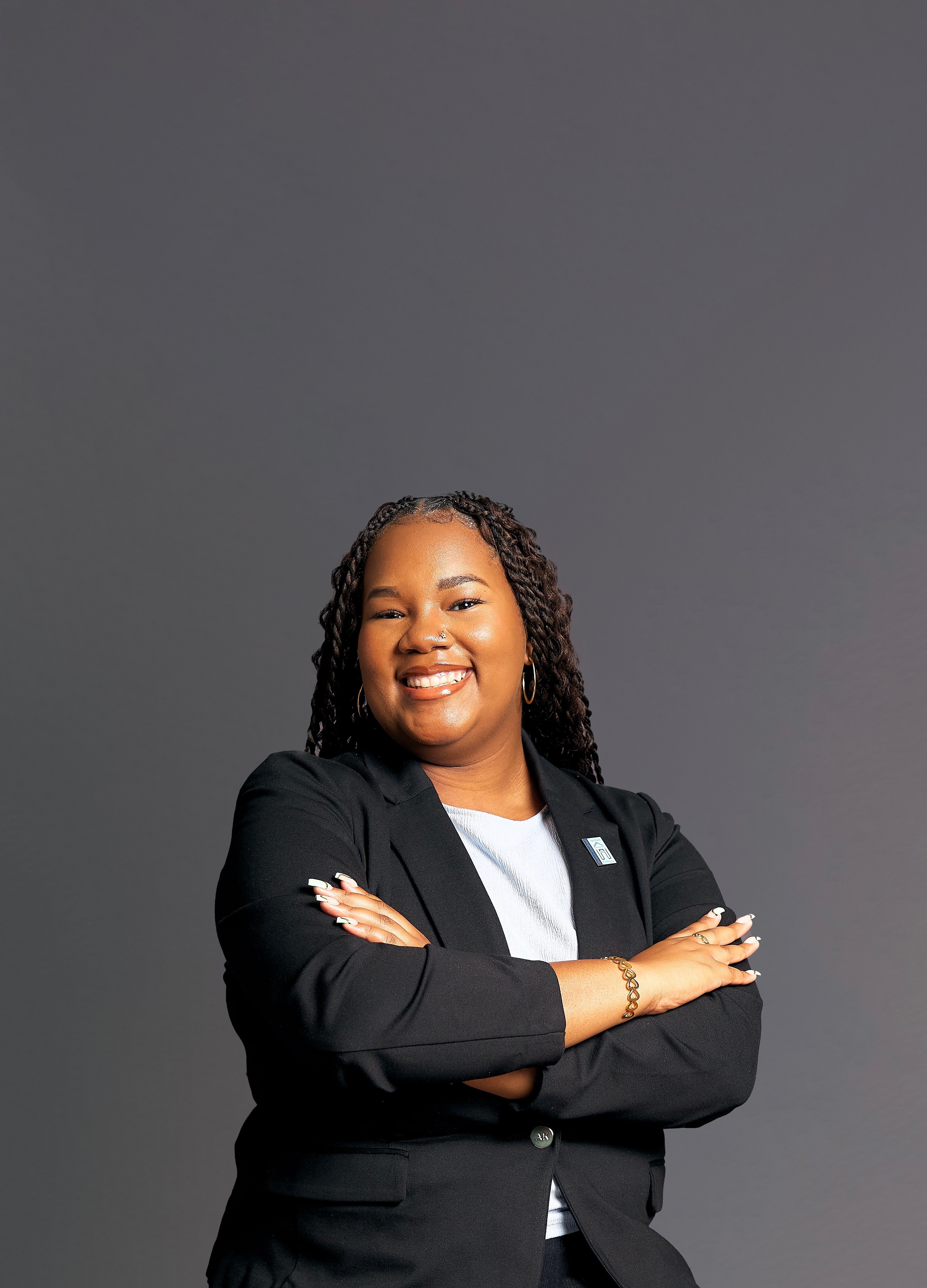Finding Purpose on Deck
Her time in the Navy wasn’t about logistics and supply alone—it was about people. While her task dealt with retail services, a deeper calling emerged through everyday interactions that she had. Whether it was serving coffee or checking on the well-being of someone at the ship's store, she cultivated a space for sailors alongside officers to take a break, connect, and feel seen.
“I talked to the newest sailor or marine to the highest-ranking officers. My goal was always to make sure everyone felt comfortable,” she asserts. It became more than a job—it was an space where people could build relationships and help each other unload their burdens mentally. “Sometimes all you need is someone to listen to your rant over a cup of coffee.”
That seemingly small role of morale support left a lasting impression—on both her and her friends. "One of them even started a compliment notepad for me that I still have to this day.” That notebook, similar to her work, was brimming with reminders of the light she carried to others—a light she now hopes to bring to the world on a larger scale.

Why Sports Psychology?
Initially aiming to become a Navy physical therapist, she soon realized her passion is not only physical rehabilitation but in mental resilience. Enter sports psychology—a field that brings together both of those worlds.
“With my background as a Navy veteran and someone who experienced injury, I want to help athletes and military service members alike navigate transitions, injuries, and mental well-being,” she explains. Whether it's a pro athlete experiencing the pressure of performance or a soldier having trouble acclimating to post-deployment, she sees their pain—and potential—for healing.
A Global Perspective: Studying in Spain
Her commitment to cultural understanding and connection led her to Málaga, Spain, in the summer of 2024. “Living with a host family gave me the chance to see the culture not as a tourist, but as a student,” she says. From improving her Spanish to being immersed in new traditions, the experience made her more aware of the global context in which sports and mental health come together.
“I understand that Americans are not the only population I may work with,” she explains. “Studying abroad helped me gain a deeper understanding of how culture plays a role in the way people process emotions, trauma, and healing.”
Giving Back: The Cool Girls Connection
Her commitment to mental health is also intertwined with her love of community. As a former participant and current volunteer with Cool Girls Inc., she’s come full circle—mentoring young girls through the complex transitions of life.
“Cool Girls has taught me that it really does take a village,” she says, noting how a staff of six supports over 200 girls in the Metro Atlanta area. She brings her academic background in developmental and adolescent psychology into the sessions she facilitates, creating safe spaces where the girls feel understood and valued.
Leadership at Spelman College
A graduating senior at Spelman College, she’s continued to grow into her voice and leadership. As both an Ambssador for Spelman College and Pathways, she’s embraced the challenge to rise and represent—despite her nontraditional student background.

“I came to Spelman thinking I had it all figured out,” she admits. “But being here taught me how to network, how to truly advocate for myself, and how much my voice really matters.”
She reflects on the quote, “The detour sometimes becomes the destination,” reiterating that Spelman was exactly the right place at the right time.
The Road Ahead: Spalding University and Beyond
This spring, she’ll graduate from Spelman and begin her Doctorate in Clinical Psychology at Spalding University, with a focus on neuropsychology and health psychology. Her long-term goal? To become a sports psychologist working with major sports agencies like U.S.A. Soccer and also serve military personnel as a contractor.
“I want to specialize in diagnoses like traumatic brain injuries, concussions, and CTE. These affect both athletes and service members—and we need more research, more care, and more understanding.”
From Navy Sailor to Future Sports Psychologist
Her journey is one of transformation—from providing morale on a Navy ship to now building a career centered on mental health, healing, and high performance. Whether it's helping young girls in Atlanta, supporting athletes through injury, or guiding fellow veterans through tough transitions, one thing is clear: her story is just beginning—and it’s destined to make an impact.
And to think, it all started with a cup of coffee and someone who cared enough to listen.
